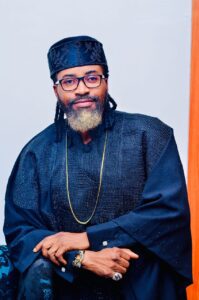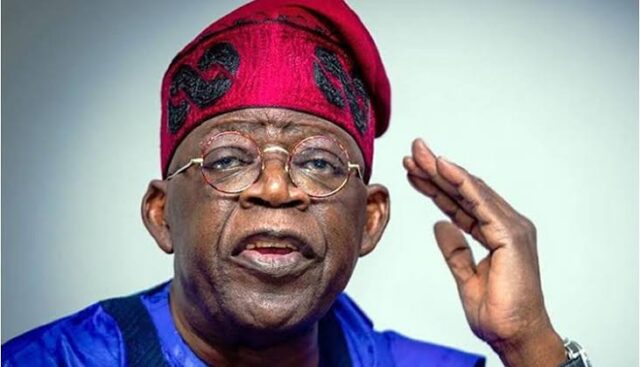In a bustling office in Abuja, Segun Solanke, the President and Founder of Provazios Sports, stared at the photograph on his desk.
It was a picture of Nigeria’s 1996 Olympic football team, the Dream Team, celebrating their historic gold medal win. That moment was etched in the hearts of many Nigerians, a rare triumph on the global stage.

Yet, as Segun reflected on the years since, he couldn’t help but feel a pang of disappointment. Nigeria had the talent, the passion, the will—but something was missing.
Determined to change the course of the nation’s Olympic history, Segun penned a heartfelt open letter to the President of Nigeria.
The letter was more than a critique; it was a blueprint for success. Segun’s words were direct, urging the President to take immediate action. The Olympics, he argued, weren’t just about showing up every four years.
They were about meticulous planning, relentless dedication, and unwavering support for the nation’s athletes. And that planning, Segun emphasized, needed to start now.
In his letter, Segun recalled the many challenges Nigeria had faced in past Olympic campaigns—poor preparation, inadequate infrastructure, and lack of coordination among sports federations.
He knew that these issues couldn’t be solved overnight, but he believed that with the right leadership and vision, Nigeria could overcome them. He called on the President to bring together the Minister of Youth and Sports Development, the presidents of sports federations, and the country’s top athletes for an urgent meeting. The purpose of this meeting was clear: to reflect on where Nigeria had gone wrong in the past and to chart a new, more strategic path forward.
Segun’s letter did not fall on deaf ears. The President, a man known for his passion for sports, was moved by the sincerity and urgency of Segun’s plea. He knew that Nigeria had the potential to shine on the world stage, but he also knew that potential alone wasn’t enough. Action was needed—bold, decisive action.
Within days, the President summoned the key stakeholders in Nigerian sports to a meeting at the State House. The room was filled with tension and anticipation as the country’s top sports officials, coaches, and athletes gathered. Among them were the athletes who had come so close to winning medals in previous Olympics, only to fall short due to circumstances beyond their control.
The President began the meeting by reading aloud from Segun’s letter, his voice firm and resolute. “We cannot continue to approach the Olympics with the same mindset, the same lack of preparation,” he declared. “We must start now, not in the final year before the Games, but from today, with a clear, strategic plan.”
The discussion that followed was both frank and revealing. Athletes spoke about the challenges they faced—training in substandard facilities, lack of access to top coaches, and the psychological toll of competing without adequate support. Federation presidents shared their frustrations with funding and coordination, and the Minister of Youth and Sports Development acknowledged the gaps in the current system.
But this wasn’t a meeting to dwell on problems; it was about finding solutions. Together, they developed a comprehensive plan that spanned the entire four-year Olympic cycle. It involved building world-class training facilities across Nigeria, ensuring that athletes had access to the best coaching and support, and providing them with international exposure to build their experience and confidence. There was also a strong emphasis on athlete welfare, with a commitment to supporting them not just financially, but emotionally and mentally as well.
The President also called on the private sector to play a role in this new vision. He knew that government resources alone wouldn’t be enough to achieve the ambitious goals they were setting. Nigerian businesses had a stake in the nation’s success, and their involvement could make the difference between a good plan and a great one.
As the meeting concluded, there was a sense of optimism in the room. For the first time in years, it felt like Nigeria was on the right track. The President thanked Segun for his leadership and vision, and as the attendees left, they carried with them a renewed sense of purpose.
Months turned into years, and the changes began to bear fruit. Training facilities sprung up across the country, attracting young talents who previously had no access to such resources. Nigerian athletes competed in international tournaments more frequently, gaining invaluable experience. The collaboration between the government and private sector led to unprecedented investment in sports, creating a sustainable system that supported athletes from grassroots to the elite level.
When the next Olympics arrived, the world saw a different Nigeria—a nation that had not only prepared its athletes physically but had also nurtured them mentally and emotionally. Nigeria’s athletes walked onto the global stage with confidence, backed by years of meticulous preparation. The results were undeniable: medals in track and field, boxing, wrestling, and, of course, football.
But more than the medals, it was the spirit of unity and determination that captured the world’s attention. Nigeria had shown that with the right approach, it was possible to turn dreams into reality. As the Nigerian flag was raised and the national anthem played in honor of the country’s new Olympic champions, Segun Solanke watched with pride. He knew that this was only the beginning.
Nigeria had finally discovered the path to Olympic glory, and it was a path that would continue to lead them to success for generations to come.









